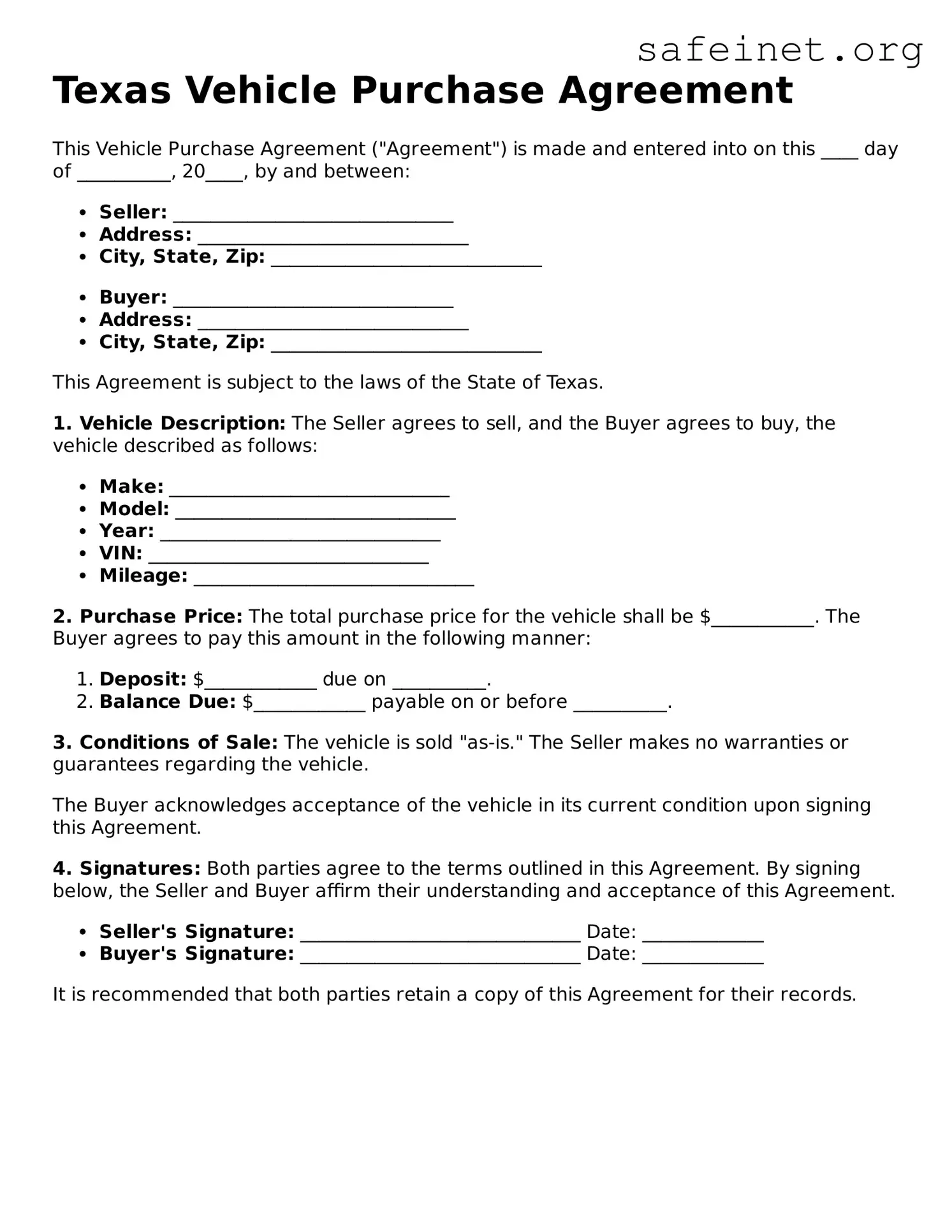What is a Texas Vehicle Purchase Agreement?
A Texas Vehicle Purchase Agreement is a written document used in the state of Texas that outlines the terms and conditions of a vehicle sale between a buyer and a seller. It serves to protect both parties by detailing essential information such as the purchase price, vehicle identification number (VIN), and any warranties or guarantees provided by the seller.
Why is a Vehicle Purchase Agreement important?
This agreement is crucial because it legally binds both parties to the terms outlined within the document. It provides clarity on the transaction and serves as proof of the agreement should any disputes arise in the future. Having everything in writing helps to avoid misunderstandings and ensures that both parties are on the same page.
What Information is Required on the Agreement?
The Texas Vehicle Purchase Agreement typically requires several key pieces of information. This includes the names and addresses of both the buyer and seller, details about the vehicle such as the make, model, year, and VIN, and the agreed-upon purchase price. Additionally, any terms regarding payment methods, registration, and delivery should be included.
Can a Vehicle Purchase Agreement be amended after signing?
Yes, a Vehicle Purchase Agreement can be amended even after it has been signed. However, any changes must be agreed upon by both parties and should be documented in writing to remain enforceable. Verbal agreements may not hold the same legal weight, so it’s best to put any amendments in writing as soon as possible.
Is a notary public required to sign the agreement?
A notarized signature is not typically required for a Texas Vehicle Purchase Agreement, but having one can add an extra layer of protection and legitimacy to the document. If there are any concerns about the validity of the signatures, involving a notary may be a prudent decision.
What should I do if the seller fails to deliver the vehicle after signing the agreement?
If a seller fails to deliver the vehicle as specified in the agreement, the buyer can take several steps. First, attempt to communicate directly with the seller to understand the reasons for the delay. If a resolution cannot be reached, the buyer may need to consider legal options, such as seeking mediation or filing a complaint with local authorities.
How do I finalize the purchase once the agreement is signed?
After signing the Vehicle Purchase Agreement, the buyer and seller should proceed with the final steps of the purchase. This generally involves completing the payment as agreed, transferring the vehicle's title, and submitting any necessary paperwork to the Texas Department of Motor Vehicles (DMV) for registration. Make sure to keep a copy of the signed agreement along with any receipts or documents for your records.
